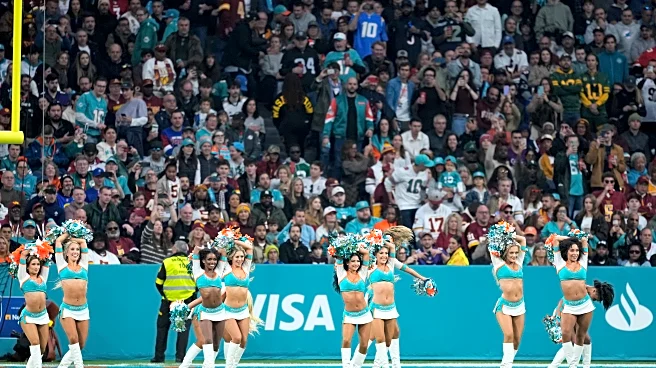What's Happening?
During a recent game against Mississippi State, Florida Gators fans expressed their dissatisfaction with head coach Billy Napier by chanting 'Fire Napier' at Ben Hill Griffin Stadium. The chants began
as early as the second quarter, with the Gators leading 10-7. Napier has faced criticism due to the team's poor performance, having only one non-losing season since his tenure began. The Gators' current 2-4 start has intensified calls for his removal, reflecting a broader trend in college football where coaches are often dismissed at the first sign of trouble.
Why It's Important?
The demand for Napier's dismissal highlights the pressure on college football coaches to deliver immediate results. This situation underscores the volatile nature of coaching positions in sports, where fan sentiment can significantly influence administrative decisions. The potential firing of Napier could lead to a reshuffling of coaching staff and impact team dynamics. It also reflects the high expectations placed on sports programs to maintain competitive performance, which can affect recruitment, funding, and overall team morale.
What's Next?
If Napier is dismissed, the Florida Gators will need to quickly identify a replacement to stabilize the team and address performance issues. Potential candidates may be considered to bring fresh strategies and improve the team's standing. The decision could also prompt reactions from stakeholders, including players, alumni, and sponsors, who may have vested interests in the team's success. The outcome of this situation could set a precedent for how similar scenarios are handled in college sports.
Beyond the Headlines
The situation raises questions about the ethical considerations of firing coaches based on fan pressure and short-term performance. It also highlights the cultural significance of college football in the U.S., where sports programs are deeply intertwined with community identity and pride. The decision to fire a coach can have long-term implications for the team's reputation and the university's relationship with its supporters.











